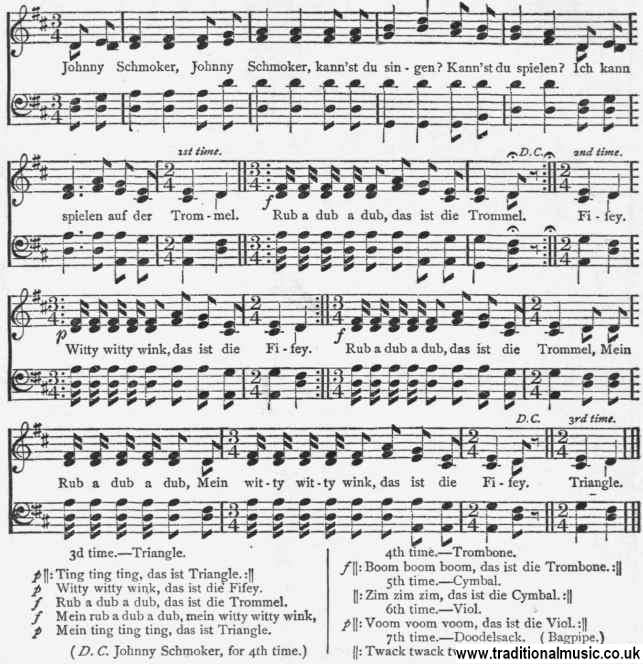Favorite Songs and Hymns For School and Home, page: 0222
450 Of The World's Best Songs And Hymns, With Lyrics & Sheet music for voice & piano.
| Share page | Visit Us On FB |
|
We heard from a bright woman the other day the expression "a musical snob,"and asked what it meant. "A musical snob, my dear, is one of the most insuf�ferable of all snobs. I mean by it an imperfectly-ed-ncated amateur, a person who can perhaps play fairly well on some musical instrument, or can possibly sing without serious faults the ordinary run of songs one hears in the parlor or at an amateur concert. When such meagerly educated musicians claim 'to know all,' though they really know little more than nothing; when they profess to have no interest in �popular music,' but dote on' the classical;' when such |
self-satisfied persons criticise every musician, affect to discover faults where others more competent to give an opinion are free to award credit�why, they are musical snobs, my dear, and the laughing stock of everybody who loves music. Such shallow frauds find fault with the programmes at the summer con�certs because they are too light; such meretricious musicians affect to dislike Gericke, to sneer at Thomas, and to dote on Seidl. They can't bear to hear an Italian opera ; they must have 'Varkner' or nothing. They like Von Bulow, but'can't bear' Krebs, and regard Carreno as a mere ' amateur.' They are wild |
||
|
JOHNNY SCHMOKER. |
|||
 |
|||
|
about the ' chello.' If they hear the ' crowd' praising a singer they immediately pounce on his or her 'style,' or' phrasing,' or' tones'�anything at all to make pre�cious little knowledge pass as the dictum of an artist, a critic, or a lover of the ' best music' A musical snob, my dear, is one of the most repulsive of its spe�cies, for it persists in pushing its snobbishness upon the sight and hearing of an abused and disgusted public. Be patient with the creature; may be it can't help it." In the old humorous song here given, sing to first D. C. then repeat from the beginning, omitting the |
part marked ist time, passing to part marked 2d time, continue on to D. C. of this (second part) then repeat again from the beginning, omitting both first and sec�ond time parts, passing to third time, or new part, and so on. Observe that the motions are made only when the words describing the instruments are sung, as for example, at " Rub-a-dub," the roll of the drum is imitated, before and after which the arms and hands are motionless. At every D. C. let the arms fall. It rep�resents a lively old fellow, a German musician, who is telling his friend Johnny Schmoker about the in- |
||
|
\ |
|||